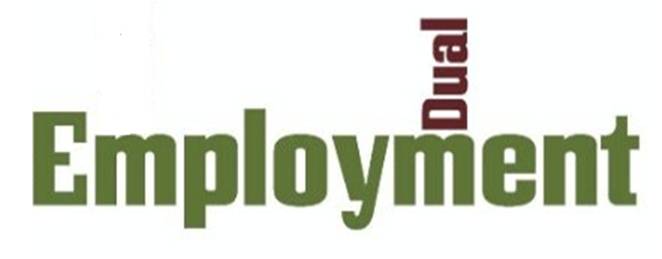Evidence Law - An
Overview
Evidence
law is the branch of law that deals with the rules and principles that govern
the proof of facts in a legal proceeding. Evidence law determines what evidence
can or cannot be presented to the court, how the evidence should be collected,
examined, and presented, and how the evidence can be used to establish or
disprove the facts in dispute.
Evidence
law can be divided into two main categories: oral evidence and documentary
evidence. Oral evidence is the evidence given by witnesses who have personally
seen or heard the facts in question. Documentary evidence is the evidence
contained in documents or physical objects that are relevant to the case. Both
oral and documentary evidence are subject to certain rules of admissibility and
weight, which vary depending on the type and source of the evidence, the nature
of the case, and the legal system.
Some of the common rules of evidence law are:
·
The best evidence rule: This rule requires that the original
document or object be produced as evidence, rather than a copy or a description
unless there is a valid reason for its absence.
·
The hearsay rule: This rule excludes any statement made by a
person who is not a witness in court unless it falls under certain exceptions.
Hearsay is considered unreliable because it cannot be tested by
cross-examination or verified by other means.
·
The opinion rule: This rule excludes any opinion or inference made
by a witness unless it is based on their personal knowledge or expertise.
Opinion evidence is considered irrelevant or prejudicial because it may
influence the judge or jury’s own judgment of the facts.
·
The relevance rule: This rule requires that any evidence presented
to the court must be relevant to the facts in the issue. Relevance means that
the evidence has some logical connection or tendency to prove or disprove a
fact. Irrelevant evidence may confuse or mislead the court and waste time.
·
The privilege rule: This rule protects certain confidential
communications or relationships from being disclosed as evidence unless there
is a higher public interest at stake. The privilege may apply to communications
between a lawyer and a client, a doctor and a patient, a spouse, and a spouse,
etc. Privilege aims to foster trust and honesty between certain parties and
protect their rights and interests.
These are
some of the basic concepts of evidence law, but many more rules and exceptions apply in different situations and jurisdictions. Evidence law
is a complex and dynamic field that requires careful analysis and application
of legal principles and precedents.
I hope
this article has given you some insight into this fascinating topic.
FAQ on Evidence Law
What is evidence law?
Evidence law,
also known as the rules of evidence, is the branch of law that governs the proof
of facts in a legal proceeding. It encompasses the rules and legal
principles that determine what evidence must or must not be considered by the
judge or jury in reaching their decision.
What are the types of evidence?
Evidence
can be classified into different types, such as:
· Oral
evidence: Evidence that is given by a witness through spoken words, either in
person or by phone, video or audio recording.
· Documentary
evidence: Evidence that is contained in or consists of documents, such as
contracts, letters, invoices, receipts, etc.
· Real
evidence: Evidence that is a physical object or a demonstration of a fact, such
as a weapon, a photograph, a fingerprint, etc.
· Judicial
notice: Evidence that is accepted by the court as true without proof, because
it is a matter of common knowledge or easily verifiable, such as historical
facts, geographical facts, scientific facts, etc.
· Hearsay
evidence: Evidence that is based on what someone else said or wrote, rather
than on direct personal knowledge or observation of the witness.
· Circumstantial
evidence: Evidence that is not directly related to the fact in issue, but from
which an inference can be drawn about it, such as motive, opportunity, alibi,
etc.
· Direct
evidence: Evidence that directly proves or disproves the fact in issue, such as eyewitness testimony or a confession.
What are the sources of evidence law?
The
sources of evidence law vary depending on the legal system and jurisdiction. In
common law countries, such as the United States and the United Kingdom,
evidence law is mainly derived from:
· Statutes:
Laws enacted by legislatures that regulate the admissibility and weight of
evidence in court proceedings, such as the Federal Rules of Evidence in the
U.S. or the Civil Evidence Act in the U.K.
· Case
law: Judicial decisions that interpret and apply the statutes and establish
precedents and principles for resolving evidentiary issues, such as the Daubert
standard for expert testimony in the U.S. or the R v Hearsay rule for
hearsay evidence in the U.K.
· Common
law: The body of unwritten rules and customs that developed over centuries
through judicial practice and tradition, such as the best evidence rule or the
parol evidence rule.
In
civil law countries, such as France and Germany, evidence law is mainly derived
from:
· Codes:
Comprehensive and systematic collections of laws that codify the rules and
principles of evidence law in civil and criminal matters, such as the Code of
Civil Procedure or the Code of Criminal Procedure.
· Case
law: Judicial decisions that interpret and apply the codes and establish
guidelines and standards for resolving evidentiary issues, such as the Cour de
cassation in France or the Bundesgerichtshof in Germany.
· Doctrine:
The writings and opinions of legal scholars and experts that analyze and
comment on the codes and case law and provide theoretical and practical
insights on evidence law.
What
are the principles of evidence law?
The
principles of evidence law are the general rules and concepts that guide the
courts in determining the admissibility and weight of evidence. Some of the
common principles are:
· Relevance:
Evidence must be relevant to the fact in the issue, meaning it must have some
tendency to make it more or less probable.
· Materiality:
Evidence must be material to the case, meaning it must have some legal
significance or importance to the outcome.
· Reliability:
Evidence must be reliable, meaning it must be trustworthy and credible based on
its source, nature and circumstances.
· Necessity:
Evidence must be necessary to prove or disprove a fact in issue, meaning it
must not be redundant or superfluous.
· Proportionality:
Evidence must be proportional to its probative value, meaning it must not cause
undue delay, waste of time or prejudice to any party.
What
are the exceptions to the rules of evidence?
The
exceptions to the rules of evidence are situations where certain types of
evidence that would normally be excluded are allowed to be admitted by the
court for specific purposes or reasons. Some of the common exceptions are:
· Confession:
A voluntary statement made by an accused person admitting his guilt or
involvement in a crime may be admitted as evidence against him despite being
hearsay or self-incriminating.
· Dying
declaration: A statement made by a person who believes he is about to die and
relates to the cause or circumstances of his death may be admitted as evidence
despite being hearsay or uncorroborated.
· Res
gestae: A statement or act that is made or done spontaneously and
contemporaneously with an event or transaction that is in issue may be admitted
as evidence despite being hearsay or irrelevant.
· Opinion:
A statement of opinion or belief by a witness who is not an expert may be
admitted as evidence if it is based on his personal perception and helps to explain
his testimony or the facts in issue.
· Expert
testimony: A statement of opinion or inference by a witness who is qualified as
an expert in a relevant field may be admitted as evidence if it is based on
sufficient facts or data and reliable methods and principles and helps to
understand the facts in issue.












Comments
Post a Comment
Thanks, For Your Valuable Comment